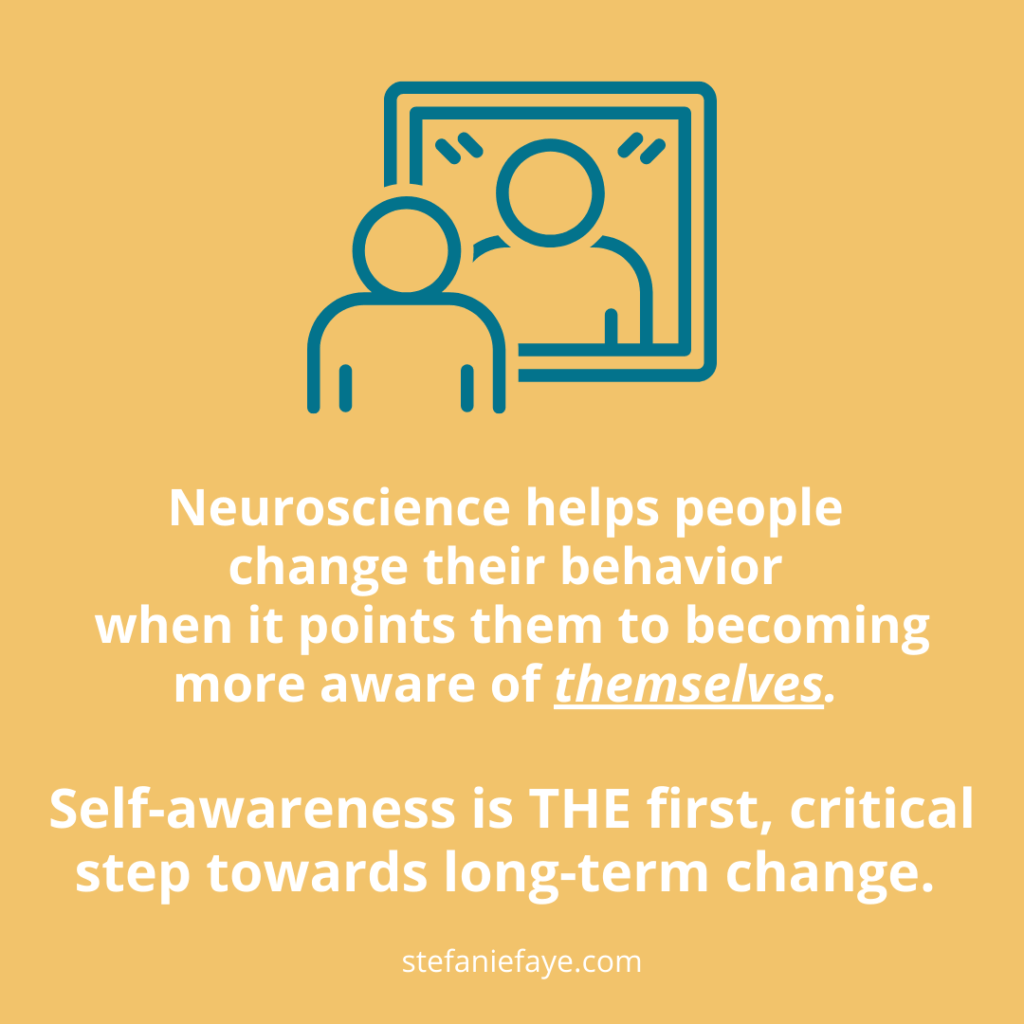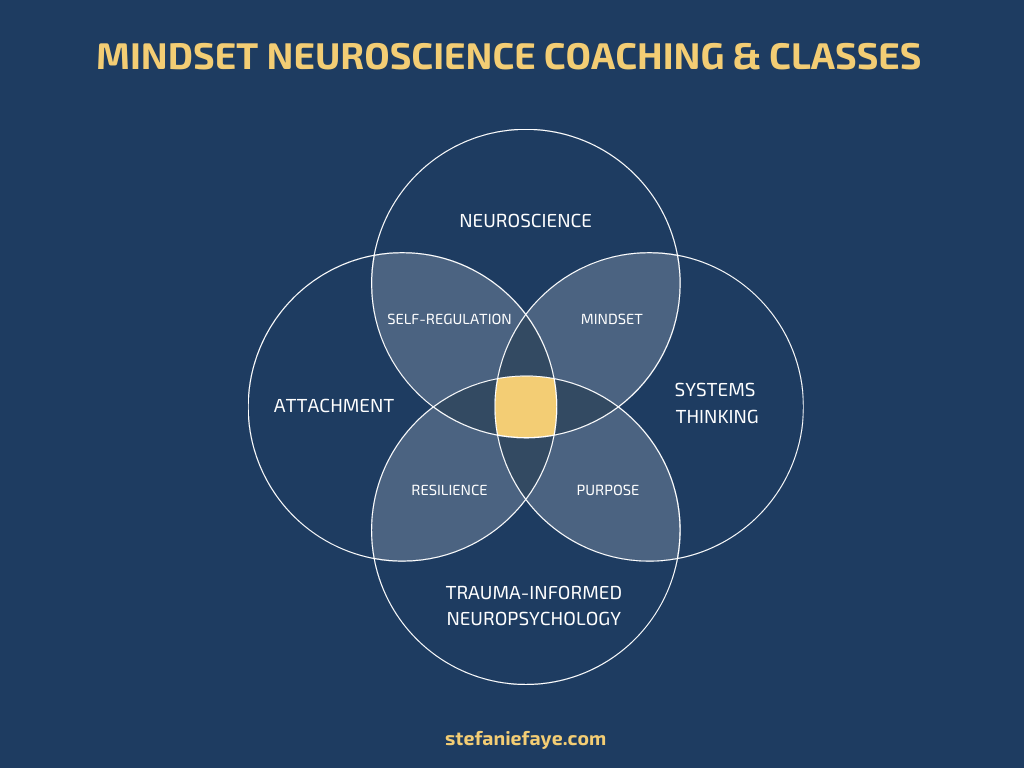
‘Can you fix my kid’s brain?’ asked a woman who ran into me as I was leaving one of my workshops. she was referring to her son’s strong emotional outbursts, especially with his family. And she was also referring to one of the neuromodulation technologies i work with.
This question told me that her beliefs about neuroscience and behavior include the idea that:
- Her child’s brain was the ‘cause’ of his emotional reactions
- People who ‘know neuroscience’ can help change people’s behaviors
- That his behaviors could change as a result of a treatment that targets only the brain
- That his behaviors could change without addressing her relationship with him
None of the above are wrong.
But they are incomplete.
Her question was similar to something I sometimes get asked, which is:
‘Can neuroscience change behavior?’.
Neuroscience is a word to describe the study of nerves, brains, cells, and the many other aspects of biology, chemistry and physics that can help us understand the mechanisms of how life and behavior emerge and manifest.
But knowing about a part of the brain or how circuitry is built doesn’t change behavior.
In my experience, neuroscience helps people change their behavior when it points them to becoming more aware of themselves.
Self-awareness is THE first, critical step towards long-term change. Here’s why:
- Self-awareness creates an interruption of an automated reaction or behavior
- If we don't interrupt an unconscious reaction or emotional trigger, we will continue to react without pausing or reflecting.
- this creates a chain reaction in our interactions with others - often with negative results that then lead to internal distress and agitation.
- Distress and agitation are internal states that lead our nervous system into a protective mode,
- Defensive-protective mechanisms conserve the more resource-intensive activities that would allow us to see things from a wider, higher perspective.
- This defensive-protective mode therefore makes it much more difficult to access the neural resources needed to become self-reflective and aware of other choices.
To change behavior, neuroscience needs to relate to people’s actual experiences.
And it needs to trigger a moment of self-awareness. A feeling of ‘yes.. That helps me make sense of how i’m feeling and how i’m behaving’.
What this also means is that the person talking about neuroscience has to live what they are talking about.
I have seen over and over again people who are BRILLIANT neuroscientists. THey know about mechanisms happening within the brain that go beyond most people’s ability to even understand. But when i see them interact with others… I see defensive or insecure behavior. I see lack of true emotional leadership that empowers people to explore their potential. I see a lack of creating psychological safety. I see a passion for being the expert - and an avoidance of being a learner and putting themselves in situations where someone would know more than they do. They ‘know neuroscience’ and will gladly tell you about how they know how to ‘change behavior’ by targeting this or that and using their modality, technology, service, etc, or how the brain works. But if their position of being the holder of knowledge or a high rank is questioned or threatened, I’ve seen a very different side come out. It’s a side I would not want others to emulate.
The opportunity to know neuroscience is all around us. Just read one of the millions of blogs or books or watch videos. You can get the hang of the language. You’ll know which part of the brian seems to* specialize on some type of function.
But knowing about something doesn’t translate into living it.
This is why I always try to add some type of reflection. And it’s why i don’t write about anything i haven’t lived yet and applied directly to my own experiences.
In this video, i’m giving you insight into a type of brainwave frequency that correlates with anxious can’t-stop-thinking activity. I’m explaining it not only from my vantage point of working directly with clients and patients with electrodes on their heads - but from how I see all of this translate into my own behavior and internal state.
And i do this from the position of a learner. I don’t have all the answers. I mess up and fall back into automated reactions sometimes. Things still trigger me without realizing it until afterwards. And then i stay open to the fact that i still have room to grow and evolve. It’s also why I explore topics I haven’t learned about yet. I want to feel like i know nothing. That just means i have a whole new world that will open up. That process never, ever ends. Which is exciting to me.
If we truly want change, we need to apply what we learn about the human brain and nervous system first to ourselves. And as we do this and we can observe and feel the results of these higher, deeper levels of awareness, we can explain this to others in ways that are personal and emotionally salient. If you like how i explain things, it’s because that’s been my process for over a decade.
Having this deeper level of applied neuroscience is important to have in the ocean of noise that’s being created from all of the information out there.
And with that - i’ve created a series of 5 monthly, live online group classes to dive deep, self-reflect and learn how to truly live from this deeper understanding of our social-emotional-neurophysiology.





